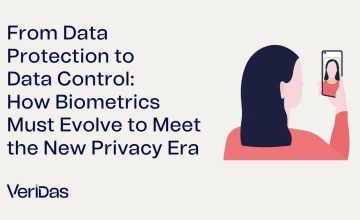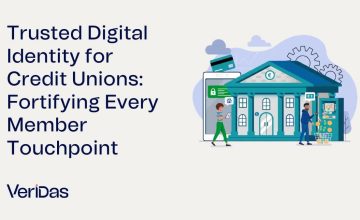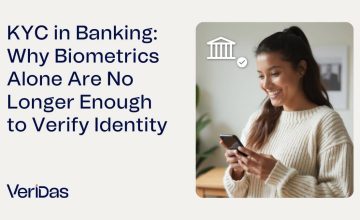Elon Musk’s recent purchase of Twitter has once again reminded us that the management of people’s identity on the internet, and on social networks in particular, is an unresolved problem. The problem of real identity versus assumed identity.
Do we really know who the people we interact with on the internet are?
We interact on the assumption that a social network account corresponds to a real person. But this is not always the case. It is no longer a secret that there are hundreds of thousands of fake accounts, not only on Twitter, that pretend to correspond to a real person, when in reality behind them there are organizations or individuals who aspire, and in many cases succeed, in altering public opinion, misinforming or amplifying the signal on any subject.
Facebook acknowledged having removed, in the first quarter of 2019 alone, 2.2 billion fake accounts. 2.2 billion. Research and consulting groups SparkToro and Followerwonk recently reported that more than 23.42% of the 93 million followers of Elon Musk’s Twitter account are likely to be fake or spam accounts. These are not small numbers. It’s a real identity problem.
Elon Musk has entered the social media ecosystem in a controversial way. But, beyond the noise generated by his ways and his controversial decisions, there is a highly relevant debate that lies halfway between freedom of expression and our right to be recognised and to recognise others by a real identity on the internet.
Internet identity and freedom of expression: from person to person
Identity on the internet and freedom of expression: an equation that faces new and exciting challenges in its digital transformation.
Freedom of expression, as a fundamental right, hinges on the reality that this capacity belongs to a specific person; and that person is the guarantor of this right, within the legal system of the society in which he or she lives.
On the other hand, when we talk about social networks and the internet, everything becomes blurred. There seems to be less consensus on the fact that users’ accounts should be linked to a real person, and that both the social network on which that person expresses themselves and the person who owns that account is responsible for the use they make of that freedom.
We relate under the premise that a user account is a person, but neither the owner of the social network knows who the people behind an account are, nor are users sure if behind hundreds of accounts there are one or a hundred different people, or if the account they interact with is a parody.
And what happens when the platform does not know the real identity of the people behind the user profiles it hosts? What happens if you can open infinite accounts making everyone believe that you are hundreds of thousands of people when in reality you are one? It seems clear. Saying whatever you want, without fear of being condemned for it, becomes a possible option. And adulterating reality, making believe that many have an opinion when perhaps, in reality, it is the opinion of very few, also becomes an option available to you.
The reality is that no one is putting a stop to this, and as a consequence: misinformation and impunity. Two outcomes were never at the genesis of social networks, nor of the internet. And which are certainly not the context of coexistence to which we aspire.
Could Twitter be the first social network to use biometrics to verify the identity of its users?
Over the years, we have observed a deterioration in the level and quality of conversation on social networks, particularly on Twitter, where anonymity, as we have already seen, encourages behavior that would not occur outside this digital context and pseudo-anonymity. Elon Musk knows this and it is one of his commitments: “to find and eliminate any bot/troll/spam on twitter”.
In all humility, but also with all the conviction, from Veridas, we would love Twitter to be the first social network to embrace the use of biometrics to verify the real identity of its users.
In this way, when a new user would like to open an account, they would have to prove that they are of legal age (if required), provide their identity document, and take a selfie so that we could verify that the person who is registering is alive and is the same person who appears on the identity document provided.
Proving your real identity with biometrics would not prevent you as an account user from using another name or nickname, but it would ensure that, in case of abuse, the real identity behind that profile could be determined. We believe in freedom of expression and the existence of anonymous accounts should remain possible, especially in countries where freedom of expression is more difficult to guarantee. In such cases, logically, statements made in any sense should not carry the weight that a verified account should.
Verified accounts should follow the process that sectors such as banking put in place in 2016 to verify the identity of a person, and thus be able to offer guarantees that the customers with whom they operate are real people.
Carrying out a biometric digital registration process, in a private, secure and voluntary manner, and linking it to the identity credentials of each country, would put a stop to the abuses that we currently see on social networks and which represent, as we have already seen at the beginning of this article, one of the biggest problems facing social networks in terms of their credibility and survival as communication channels. Once an account has been verified, it should be checked that the person using the profile is the person who registered using biometrics, thus recovering the essence of social networks as a space for person-to-person relationships and communication.
Both the owners of social networks, and each of us as users, have a responsibility in this regard. There is no excuse for not doing better. The technology is available, secure and complies with personal data protection regulations. We just need to want to change things for the better.
This is a historic moment that can serve to set a direction not only for Twitter, but also for the rest of the social networks.
An opportunity also to improve the user experience, without passwords
At Veridas we have proprietary technology that allows us to eliminate passwords and keys. This is also a great opportunity to improve the user experience of any social network. According to a study by Bitwarden, 56% of users change their passwords at least once a month. This creates difficulty as time is wasted and it is difficult to verify the identity of the person who has decided to change the password. Therefore, this great opportunity translates into speed, convenience, and security for the millions of users who could access their social network in a robust, secure, and comfortable way using their face or voice.



![[DEMO GRATUITA]: Descubre cómo funciona nuestra tecnología en vivo](https://no-cache.hubspot.com/cta/default/19918211/478bcde8-f23d-4436-a640-ce15a25d0877.png)




